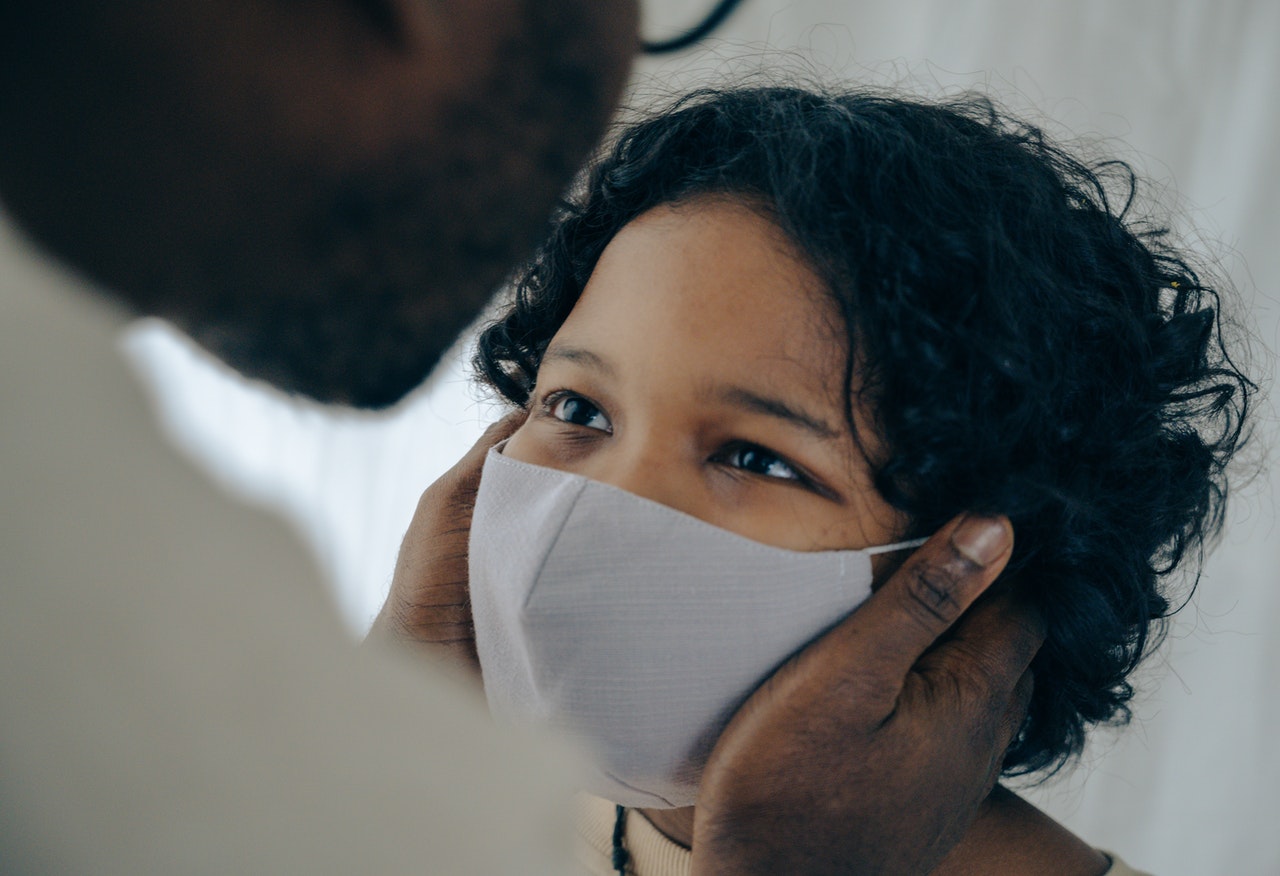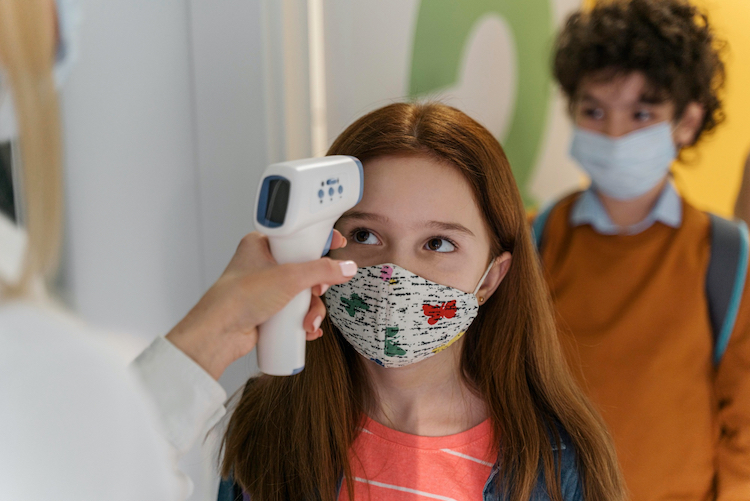How to Prep Kids for a Potentially Bumpy Return to School
 As the American Academy of Pediatrics continues to review the rapidly evolving coronavirus situation in schools, it is still recommending in-person education, said Dr. Sara Bode, chairwoman-elect of the American Academy of Pediatrics’ Council on School Health. Pediatrician Dr. Perri Klass discusses some ways you can ensure a smooth re-entry for your child.
As the American Academy of Pediatrics continues to review the rapidly evolving coronavirus situation in schools, it is still recommending in-person education, said Dr. Sara Bode, chairwoman-elect of the American Academy of Pediatrics’ Council on School Health. Pediatrician Dr. Perri Klass discusses some ways you can ensure a smooth re-entry for your child.
Discuss the importance of vaccines and masking.
First, and most importantly, make sure all family members who are eligible are fully vaccinated, said Dr. Grace Black, a general pediatrician affiliated with the University of Rochester Medical Center. This includes kids ages 12 and up, as well as their older siblings, parents and grandparents.
As soon as the vaccine is available to kids under 12, said Dr. Amy Shriver, a general pediatrician in Des Moines who is affiliated with Blank Children’s Hospital, it’s important that they get it, too.
If your child is too young to receive the vaccine and is anxious about returning to school, reassure her that experts are working to make the vaccine available as quickly as possible, and that her pediatricians are eager to help.
Be OK with academic imperfection.
Because of the large-scale disruptions in learning over the past year, some students will be returning with major gaps in their education, Dr. Bode said, and they will need time to catch up.
Instead of focusing on the expectation that kids will be at grade level, the tone for teachers and parents should be, “this may be something you missed, we’re just going to have to work on it together.”
If you notice that your child is really struggling to catch up and isn’t able to meet certain expectations, it could be time to line up additional support. “Call your pediatrician,” Dr. Danielle Erkoboni, a general pediatrician at Children’s Hospital of Philadelphia said, who can provide guidance on possible next steps. “We often can hook families into further evaluation or behavioral therapies.”
Reintroduce social activities safely.
“Most of my patients who were virtual last year had a really rough year,” Dr. Shriver said. “They weren’t learning well, they were lonely, most didn’t have any outside activities like sports,” and many of those kids struggled physically and mentally.
While the weather is still warm, summer activities and visits with friends — hikes, picnics, ball games in the park — can help reintroduce kids to group activities and take some of the tension out of going back to the classroom.
Return to a routine.
Children’s schedules have become disarranged over the pandemic year, with many eating and sleeping at odd hours.
To help your kids get back on track before school starts, return to your regular school-year routine now: Enforce regular sleep and wake times (with a “no screen” rule for at least an hour before bed), and try to keep meal times consistent — with dinner not too late and breakfast early enough to be eaten before school.
Provide support.
When children are feeling vulnerable, they need more physical affection, reassurance and acknowledgment of their feelings, Dr. Shriver said. In times of stress, let your child know that you are there for them by increasing the amount of attention and interaction you provide at home.
Regularly ask about their day by going around the table and having everyone tell one story, or do check-ins individually. If your child seems troubled or is expressing fear or anxiety, listen to their concerns and acknowledge that these are complicated times. Don’t dismiss them. If needed, be ready to offer outside solutions, like speaking with a teacher or calling their pediatrician.
Be prepared for some challenges.
Going back to school means that your child will be mingling with children whose families may have had different approaches to safety. Some children may not want to wear masks; others may be from families that rigorously practiced physical distancing, and some may have families that took fewer precautions.
Some children may even find themselves facing bullying or mockery as a result of their precautions. Make sure that your child’s school is doing everything they can to create a culture of acceptance and compassion, and that they are taking bullying — whether it’s because of weight gain, masking, academic issues or anything else — seriously and addressing it promptly.
Excerpted from “How to Prep Kids for a Potentially Bumpy Return to School” in the New York Times. Read the full article online for more details.
Source: New York Times | How to Prep Kids for a Potentially Bumpy Return to School, https://www.nytimes.com/2021/08/17/well/family/back-to-school-covid-delta-variant.html | © 2021 The New York Times Company
If you have concerns about your child, CHC Care Coordinators can arrange a free 30-minute consultation so you can explore options with an expert. We invite you to call or email us at 650.688.3625 or careteam@chconline.org to set up an initial Parent Consultation appointment. CHC teletherapy services are available now.





